
So Good They Can't Ignore You: Why Skills Trump Passion in the Quest for Work You Love
Cal Newport, Dave Mallow, et al.
4.5 on Amazon
37 HN comments

The Richest Man in Babylon: Original 1926 Edition
George S. Clason , Charles Conrad, et al.
4.7 on Amazon
37 HN comments

Basic Economics
Thomas Sowell
4.8 on Amazon
35 HN comments
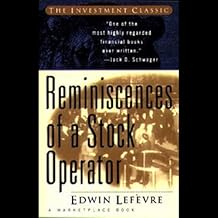
Reminiscences of a Stock Operator
Edwin Lefevre, Rick Rohan, et al.
4.6 on Amazon
35 HN comments
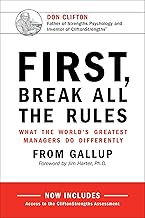
First, Break All the Rules: What the world's Greatest Managers Do Differently
Jim Harter, Marcus Buckingham , et al.
4.6 on Amazon
34 HN comments
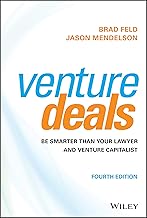
Venture Deals: Be Smarter Than Your Lawyer and Venture Capitalist
Brad Feld and Jason Mendelson
4.7 on Amazon
31 HN comments

Delivering Happiness
Tony Hsieh
4.6 on Amazon
30 HN comments
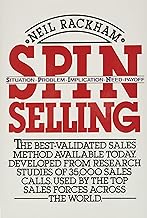
SPIN Selling
Neil Rackham
4.5 on Amazon
30 HN comments

Nickel And Dimed: On (Not) Getting By In America
Barbara Ehrenreich
4.3 on Amazon
29 HN comments

The Five Dysfunctions of a Team: A Leadership Fable
Patrick Lencioni
4.6 on Amazon
28 HN comments

The Startup Owner's Manual: The Step-By-Step Guide for Building a Great Company
Steve Blank and Bob Dorf
4.5 on Amazon
27 HN comments

Give and Take: A Revolutionary Approach to Success
Adam M. Grant PhD, Brian Keith Lewis, et al.
4.6 on Amazon
25 HN comments

Titan: The Life of John D. Rockefeller, Sr.
Ron Chernow
4.7 on Amazon
23 HN comments

The Challenger Sale: Taking Control of the Customer Conversation
Matthew Dixon and Brent Adamson
4.5 on Amazon
22 HN comments
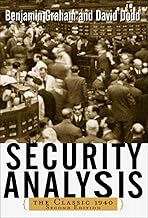
Security Analysis: Principles and Techniques
Benjamin Graham and David Dodd
4.7 on Amazon
22 HN comments
AndrewKemendoonOct 2, 2014
So far it has given a lot of insight into his upbringing and general history that would be the bedrock of his philosophy. Hopefully it gets into how he identified and executed on his business strategies.
jhwithamonApr 25, 2016
thomonAug 11, 2020
markdog12onAug 25, 2017
https://www.amazon.ca/Titan-Life-John-Rockefeller-Sr/dp/1400...
and Alexander Hamilton:
https://www.amazon.ca/Alexander-Hamilton-Ron-Chernow/dp/0143...
Both incredible.
I admit I've never been terribly interested in Grant, maybe I should give him a look. Tough when there's an infinite abundance of great literature. We're truly spoiled.
abosleyonOct 16, 2012
rajuonMar 22, 2007
Hackers and Painters
(Disclaimer - I am moonlighting on my startup idea, but have these books to be a huge source of inspiration. Also, Joel's list is highly recommended. Another book, and it may seem off-topic is Titan: The Life of John D. Rockefeller, Sr. It helps to study the lives of those who have managed to pull off very successful businesses)
avianonNov 27, 2016
https://en.wikipedia.org/wiki/Titan_(Baxter_novel)
edw519onJuly 4, 2009
Carnegie by Peter Krass, http://www.amazon.com/Carnegie-Peter-Krass/dp/0471468835/ref...
"Titan, The Life of John D. Rockefeller, Sr." by Ron Chernow, http://www.amazon.com/Titan-Life-John-Rockefeller-Sr/dp/1400...
"iWoz", by Steve Wozniak, http://www.amazon.com/iWoz-Computer-Invented-Personal-Co-Fou...
gattronJune 28, 2019
Myself, I'm absolutely fascinated by the confirmed hydrocarbon lakes and rivers on Titan and can't wait to see actual optical images from up close (so far we only got synthetic-aperture radar images [0]).
[0] https://en.wikipedia.org/wiki/Titan_(moon)#Lakes
kriroonDec 13, 2016
I might pick up "City of Gold". "Make it so" could also be interesting those are the only two that immediately grabbed my interest.
avaronAug 29, 2019
That you don't know what business Rockefeller was in would please him greatly beyond the grave. The man went to great lengths to obscure his business activities, and there was a concerted effort late in his life and by his descendants to ensure that people remembered the family for their charitable activities, and not the business activities that precipitated the largest anti-trust action in history.
zippy5onAug 9, 2021
In the 1920’s standard oil subsidiaries were still an effective monopoly for petroleum in the us market. Therefore a reasonable proxy for the future profitability of the entire industry in that market assuming that their ruthless anticompetitive behavior allowed them retain their market dominance. Additionally they were profiting off the same disruption in transportation that you are citing, which as we are both acknowledging was massive.
The book Titan is awesome context for this. Wonderful read.
Unlike the technology such as railroads, natural resource commodities and vertically integrated supply chains tend to not be disrupted as easily (very unfortunate for us).
I’m not saying that it couldn’t have gone wrong, but clearly an asymmetrical risk reward at 3-5 PE. So in general you are right, but I think if you find a company that has a great business model, is a monopoly, and is disrupting a massive market, at reasonable price, you have a recipe for outlier returns.
infocollectoronOct 5, 2018
salemhonJune 17, 2014
He is credited with creating modern medicinal research (though he detested it himself), and all around, was a highly unique character in history.
Not withstanding him destroying his competition and consolidating the market, with the goal of lowering kerosene (I may have the wrong oil-type here) by 95% as a goal for "giving to the masses."
Still many, many, many despicable acts, but a multi-dimensional man of course.
http://www.amazon.com/Titan-The-Life-John-Rockefeller/dp/140...
* While providing abundant new evidence of Rockefeller's misdeeds, Chernow discards the stereotype of the cold-blooded monster to sketch an unforgettably human portrait of a quirky, eccentric original. A devout Baptist and temperance advocate, Rockefeller gave money more generously--his chosen philanthropies included the Rockefeller Foundation, the University of Chicago, and what is today Rockefeller University--than anyone before him. Titan presents a finely nuanced portrait of a fascinating, complex man, synthesizing his public and private lives and disclosing numerous family scandals, tragedies, and misfortunes that have never before come to light.
adventuredonSep 4, 2018
Empires of Light, by Jonnes. Titan, by Chernow. The Wright Brothers, by McCullough. His Excellency, by Ellis. The Wizard of Menlo Park, by Stross. I Invented the Modern Age, by Snow. Dealers of Lightning, by Hiltzik. Margin of Safety, by Klarman. Masters of Doom, by Kushner. Andrew Carnegie, by Nasaw. Infidel, by Hirsi Ali. Buffett, by Lowenstein. Where Wizards Stay Up Late, by Hafner. Shoe Dog, by Knight. The Making of the Atomic Bomb, by Rhodes.
jakartaonMar 30, 2010
Other interesting things he did -
Horizontal integration: buying up refineries in every state
Vertical integration: acquiring pipelines, home delivery systems, etc
Free: in some cases Rockefeller gave away things for free or below cost. In China they had never used kerosene lamps, so Rockefeller gave away the lamps for free in order to get the Chinese to start using them and eventually buy Standard Oil's kerosene
-He also would undercut competitors in the refinery biz (sometimes below cost) in order to drive them out of business and force them to sell their refineries to him.
How is any of this useful?
Some people argue that Bill Gates is an iteration of Rockefeller's monopolist approach to business. By creating standards (Windows as the go to OS for PCs) he would be able to get consumers to use MSFT's related products - Office, Internet Explorer, etc.
There is a great book called Titan by Ron Chernow where you can read an excellent account of how Rockefeller rose from being a lowly accountant to founding and operating Standard Oil.
WalterBrightonJuly 8, 2017
See "Titan" by Ron Chernow
> pretend
I know what the popular wisdom is. But dig a little deeper and you'll find it is not correct.
> General Motors
was formed in 1908. The Sherman Antitrust Act was in 1890, so GM could not have been the reason for it.
KadrithonJune 8, 2012
It talks a bit about how one person tracked attacks through multiple countries back to China.
thomonOct 28, 2016
dbuderonNov 26, 2017
new_timeonApr 21, 2020
For a less biased look at the history of the American oil industry by way of Rockefeller and Standard Oil, I strongly recommend Titan by Ron Chernow - author of Hamilton - which is an excellent account of Rockefeller and Standard Oil, both the good and the bad.
hvassonSep 19, 2013
Also Teddy Roosevelt's biography has been very influential.
bedigeronApr 30, 2010
And yes, I've read about Titan Rain, Ghost Net, Operation Aurora, Coolswallow, Giving Wings to the Tiger, The Dark Visitor, Estonia's "Web War One" and more. All of this talk of "cyberwar" strikes me as merely a modern-day regurgitation of Cold War Boogie Man Stories, like Missile Gaps, and Bomber Gaps, Bears in the Forest, and Yellow Hordes, and stoic Spetznaz supermen. The emergent behavior seems to be lining up a successor magic funding word to "terrorism", should bin Laden die.